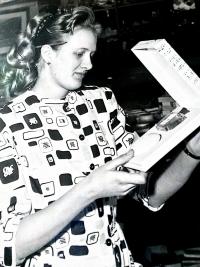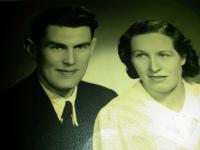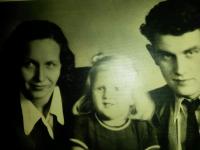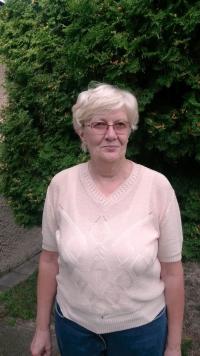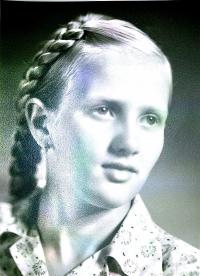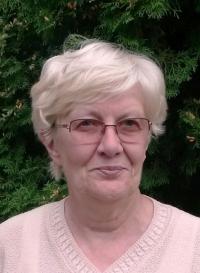I say to my children: If communists get to power again, run away

Stáhnout obrázek
Eva Langrová was born May 24, 1944 in Prostějov in the family of František Beneš, who was an official in the National Socialist Party. Since he worked as a post office clerk and thus he was an employee of the state, he was ordered to move to Jeseník after WWII as part of the program of resettlement of areas which had been depopulated after the deportations of Germans. Eva therefore grew up in Jeseník. Her father was a very active man, and one of his contributions included the initiation of the construction of a cinema in Jeseník. In July 1950 he was sentenced together with sixteen other people in a politically motivated trial for alleged espionage and high treason. Eva‘s mother died a year later. Eva was raised by her grandmother, who blamed Eva‘s father for the break-up of their family. Eva was not allowed to study, and eventually she found a job as a shop assistant in a drugstore. She was going to visit her father while he was in prison. He was released after eleven years of imprisonment but Eva never re-established her relationship with him as before due to her alienation from him and the fact that she was brought up by the grandmother, and she suffered from psychic problems. After 1989 she became a member of the Confederation of Political Prisoners and she is also active in the association Dcery (‘Daughters‘), which unites daughters of political prisoners.
